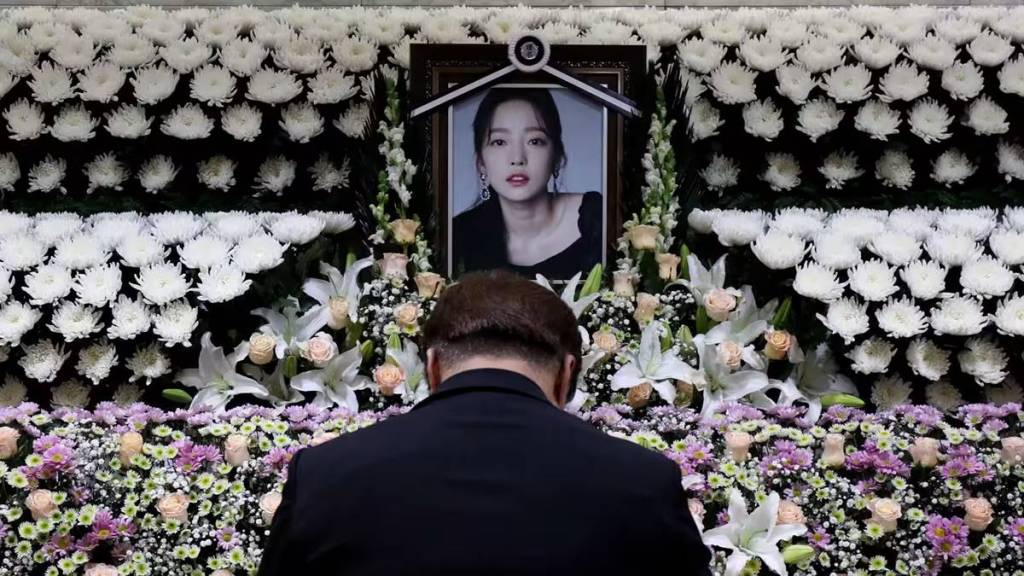Under the glittering lights of concert stages and the fervent cheers of fans lies a troubling truth: the K-pop industry, celebrated globally for its mesmerizing performances and meticulously crafted stars, is grappling with a profound mental health crisis. Recent suicides among young idols have pulled back the curtain on a world of relentless pressure, societal scrutiny, and personal isolation.
A String of Losses
In November 2019, Goo Hara, a member of the K-pop girl group Kara, died by suicide at the age of 28. Just weeks earlier, her close friend Sulli, another K-pop star, had taken her own life at 25. This year alone, the industry mourned the loss of Moonbin, 25, a member of ASTRO, and actress Jung Chae-yull, 26. These deaths are not isolated tragedies but part of a pattern that reflects the broader mental health struggles within South Korea’s entertainment industry.
South Korea’s suicide rate is the highest among OECD countries, with 25.2 deaths per 100,000 people in 2022. Suicide has been the leading cause of death for South Koreans aged 10 to 24 for over a decade. Within the high-pressure world of K-pop, this national crisis manifests with harrowing clarity.
The Price of Perfection
The K-pop industry is a well-oiled machine that starts shaping stars, or “idols,” in their early teens. Trainees are subjected to years of gruelling practice schedules, intense dieting, and strict behavioural rules. They sacrifice their adolescence to meet the industry’s exacting standards. Once they debut, the pressure only mounts.
Idols are expected to maintain flawless images, excelling not just in singing and dancing but also in acting, public appearances, and social media engagement. Missteps, no matter how minor, often attract harsh criticism from fans and the public. Cyberbullying and invasions of privacy are rampant, with idols’ appearances, personal lives, and even their relationships subjected to intense scrutiny.
“Being a K-pop idol is like living under a microscope,” said Dr Lee Soo-jin, a Seoul-based psychologist specializing in celebrity mental health. “Every aspect of their lives is judged, and the pressure to perform perfectly can be overwhelming.”
A Culture of Silence
South Korea’s cultural emphasis on achievement and conformity further exacerbates the mental health crisis. Seeking help for psychological struggles remains stigmatized, particularly among public figures. Many idols fear that admitting to mental health issues could damage their careers.
Goo Hara’s life epitomized these challenges. Abandoned by her parents as a child, she rose to fame with Kara but struggled to find stability after the group disbanded. Following a high-profile legal battle with an abusive ex-boyfriend, Goo became a target of relentless online harassment. Her public attempts to address these issues were met with criticism rather than empathy.
“She was the kind of person who wouldn’t express her struggles very much, and she kept things inside,” said Choi Ran, a makeup artist who worked closely with Goo. “The industry doesn’t leave room for vulnerability.”
The Fan Factor
K-pop’s intense fan culture compounds the mental health struggles of idols. Fans often develop parasocial relationships with idols, feeling deeply connected to them despite having no personal interactions. While this devotion can provide a sense of purpose for some idols, it also brings unrelenting demands.
“You’re supposed to be everything to everyone,” said a former idol who spoke on condition of anonymity. “Perfectly relatable but also untouchable. It’s exhausting.”
The darker side of fandom includes cyberbullying and doxing, with fans weaponizing social media to enforce their expectations. Idols who fail to meet these standards face torrents of abuse, which can have devastating psychological effects.
Efforts to Reform
Acknowledging the growing crisis, some entertainment agencies have begun implementing mental health initiatives. Hybe Corporation, the agency behind BTS and NewJeans, now allows trainees to take mental health breaks and has hired an in-house psychiatrist. However, these efforts remain rare and largely insufficient to address the systemic issues.
Government intervention has also fallen short. Despite suicide prevention programs launched in 2004, South Korea struggles with resource shortages and underfunded mental health services. Experts argue that both the entertainment industry and the government need to do more to protect vulnerable individuals.
A Way Forward
The suicides of idols like Goo Hara and Sulli have spurred public conversations about mental health, but stigma persists. Activists and psychologists call for comprehensive reforms, including mandatory counselling for idols, stricter regulations on fan behaviour, and more robust cyberbullying laws.
“Change won’t happen overnight,” said Dr. Lee. “But the industry and society must recognize that these young people are human beings, not just commodities. Their mental health needs to be prioritized.”
As the world continues to celebrate K-pop’s cultural impact, it must also reckon with the unseen toll it takes on the stars who bring it to life. For fans, colleagues, and loved ones mourning the loss of idols, the hope remains that these tragedies will lead to meaningful change.
“We loved them because they gave so much of themselves to us,” said a fan at a memorial for Goo Hara in Seoul. “But maybe we should have given more love back.”


